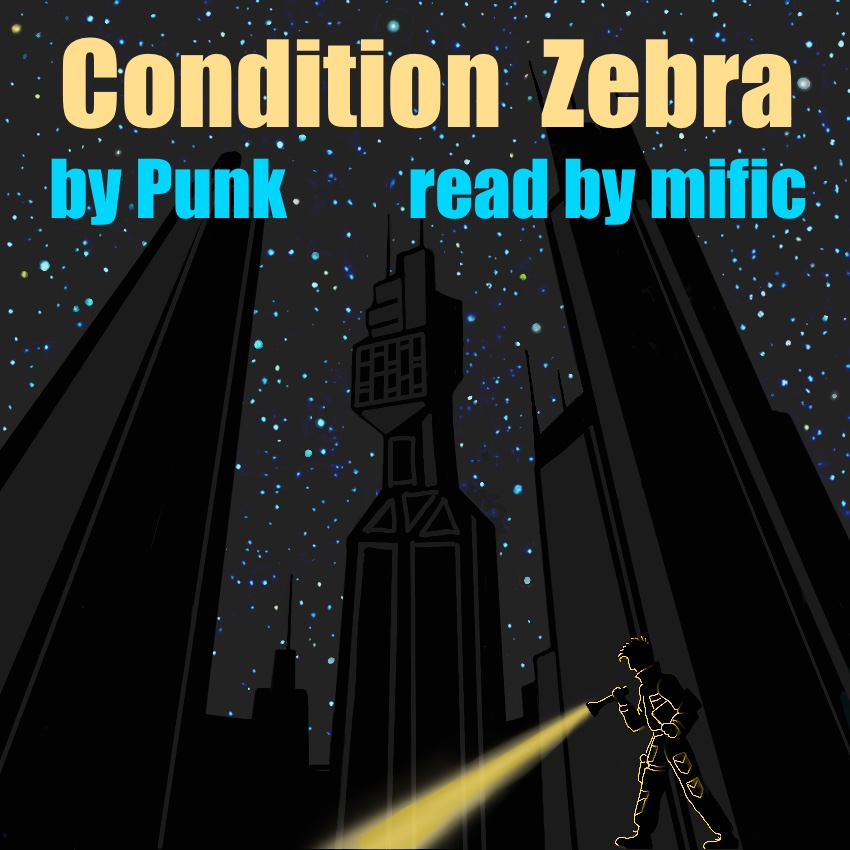The Big Idea: Christy Climenhage

The world can be a dark and scary place. It would be foolish not to acknowledge this, but to author Christy Climenhage, it’s also important to acknowledge the ways in which we all keep on keepin’ on in the trying times. Follow along in the Big Idea for her debut novel, The Midnight Project, and see how the world is ending, and yet still going.
CHRISTY CLIMENHAGE:
There are lots of themes underlying my debut sci-fi thriller, The Midnight Project: genetic engineering gone wrong, man-made ecological collapse, what it means to be human, what exactly is wrong with late-stage capitalism and the commodification of science. But for me, the Big Idea behind my book lies in the resilience of the two main characters who just keep going as everything collapses around them. The book asks: how do we live a good and meaningful life in a crumbling world? How do we muddle through the pre-apocalypse?
I’m slightly appalled by how familiar this fictional dystopian world feels – powerful billionaires, dying pollinators, corporate greed, off-the-charts scientific possibilities but everything is spiraling into disaster. These days (today, I mean), I can read about ultra-rich men with a messianic complex who want to save humanity while carelessly destroying the environment, or mining companies that want to strip the ocean floor before even bothering to map its ecosystems. Philip K. Dick and Octavia Butler would weep. J.R.R. Tolkien would be mightily pissed off at the companies stealing words from his realms to name their businesses.
I suppose the world of The Midnight Project is rooted in reality as well as fiction. I wrote it and re-wrote it during the darkest part of the covid-19 pandemic when we were all just getting up and getting on with it. The bad news “out-there,” until it encroached on “in-here.” The work piling up even while the stores closed, the hospitals filled and everyone stayed home. The kids still in school, online, then in-person, with the rules changing every five minutes to try to keep them safe. No enrichment, no entertainment, just everyone hiding under their rock, trying to get by, putting food on the table, getting the laundry done. I suppose it’s typical of late-stage capitalism that even as the world was crashing down, everyone still needed their paycheque to cover groceries.
Of course, when I talk about today’s world in pre-apocalyptic terms, I’m not being prescient. I’m recognizing the fear and anxiety that underlays much of what is happening in the world right now. And the feeling of powerlessness that might make a person desperate enough to attempt to create an oceanic hybrid human just to feel they could make a difference. In Frankenstein, the monster’s creator is motivated by a dark ambition to create life and then is horrified at the result. In The Midnight Project, Raina is motivated by money and ambition but also wants to salvage something good out of the circumstances she finds herself in. In her heart, she is motivated by a desire for redemption.
In the midst of cataclysmic problems around the world that just keep piling up, our two genetic engineer heroes see an opportunity to do some good in the world, or at least try to prevent someone else from doing worse. It’s not much, but it’s within their control, and their abilities.
Going back to the today’s reality for a second, I think it’s normal to wonder how to live a meaningful life in our current circumstances too—how to lead a life filled with hope, ambition and purpose. And I can’t deny how much I relate to the two main characters of The Midnight Project, Raina and Cedric, just getting up and going to work every day, in spite of everything barreling toward them. So, according to the story, and my own experience, how does one muddle through the pre-apocalypse? Let’s take a lesson from our plucky heroes.
First, Raina and Cedric hold onto their comforting routines. They drink coffee together every morning out of the same mugs, watch the Holo-News and compartmentalize their lives. Then they turn to the hard work of inventing deep-sea human hybrids. The big bad world out there, the safe world inside their laboratory. They keep tabs, they know what’s happening in the outside world, but they hold it at bay and get on with the things they need to do to get by. They ignore some things. As Raina says, “They were trying times and I only wanted to try in certain ways.” They get up, they go to work, they keep solving their problems. One step at a time. One foot in front of the other. With perseverance. With persistence. With, occasionally, steely-eyed determination.
Second, at the heart of everything, Cedric and Raina hold fast to meaningful relationships, even if they’re isolated and cut off. Even if those relationships are themselves imperfect. They cling to comfort and each other and keep drinking their coffee to the bitter end (bitter, get it? Because it’s coffee).
And finally, through it all, they try to do just a little good in the world, even when it feels like the world is too big and too far gone to make much of a difference. As Cedric says, “We cannot fix the world. But in this tiny corner of it, perhaps we can control our own destiny, at least for a while.” This little bit of agency and momentum is the way they light a candle against the darkness. This is the way they cleave to hope in the pre-apocalypse.
And maybe there’s something in that for our trying times too.


